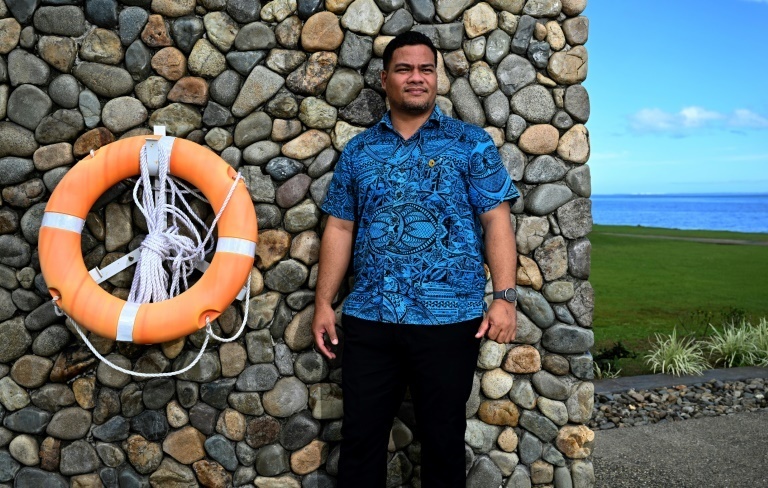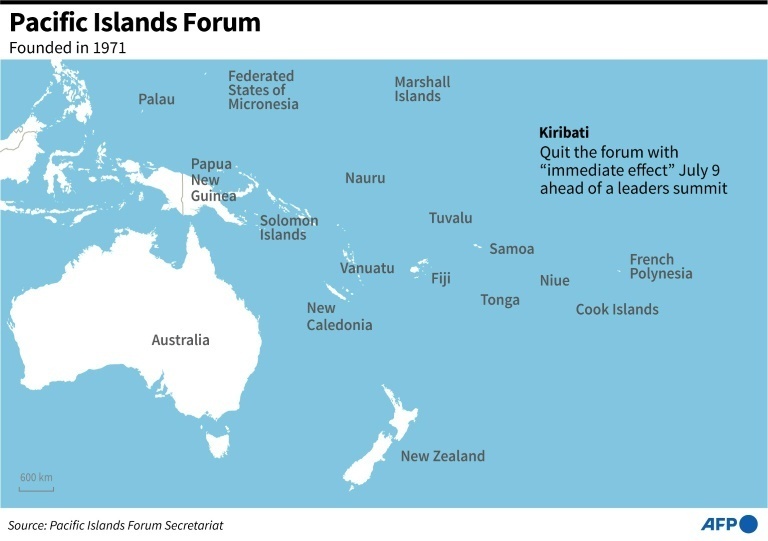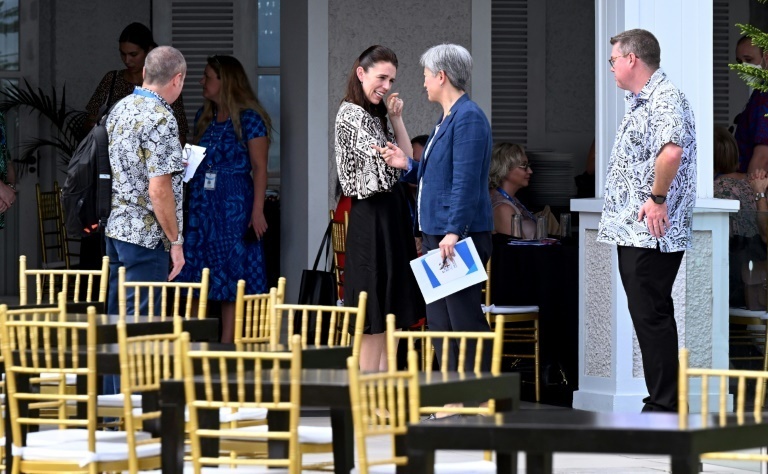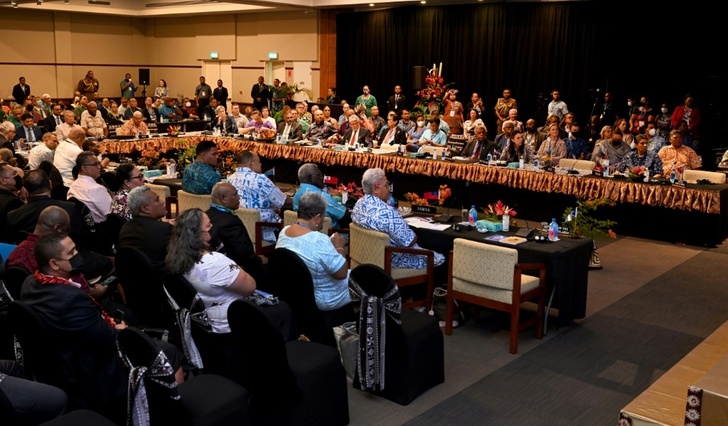US-China rivalry and divisions over regional leadership threatened to overshadow a landmark summit of island leaders that got under way Tuesday in the Fijian capital, Suva.
This year's Pacific Islands Forum is the most important meeting in years, coming after a Covid-enforced hiatus and as low-lying tropical isles run out of time for climate action.
But instead of a singular focus on the threat posed by rising sea levels and ever-more-powerful storms, China's bid to play a bigger regional security role looks set to dominate the agenda.
The Solomon Islands in April signed a highly contentious security agreement with China, upsetting decades-old alliances with the West.
And on the eve of the summit, Beijing-allied leaders in the tiny nation of Kiribati announced the country would be renouncing membership of the forum altogether, fracturing a region that puts a high value on unity and consensus.
- 'Breakdown in our connections' -

But Fiji president and chair of the Pacific Islands Forum, Voreqe Bainimarama, used his opening remarks to acknowledge the "breakdown in our connections" with the Micronesian nations, of which Kiribati is a part, that has occurred in recent years.
It had been hoped a carefully negotiated agreement with Micronesia would be enough to heal a schism that emerged when the region's chosen candidate to lead the forum was snubbed.
But Kiribati's exit sparked concerns about a fracturing of the Pacific's closely held unity, which gives the region of small island states heft in global climate negotiations.
Tuvaluan foreign minister Simon Kofe told AFP he was "surprised and saddened" by Kiribati's departure, but was optimistic the nation could be enticed to rejoin.

Faced with such a threat, his top priorities at the summit are climate related, although he said he understood "how some members want to discuss the security issues".
Concerns about regional security -- brought to the fore by the Solomons-China pact -- "draw a bit of attention away from climate change", Kofe said.
- Security v climate -

Albanese, who will arrive in Suva on Wednesday, sought to knit the issues of climate and security together Tuesday ahead of his departure for the summit.
"Our neighbours in the Pacific understand that climate change is a national security issue," he told a press conference in Sydney.
mmc/arb/je
© Agence France-Presse
Your content is great. However, if any of the content contained herein violates any rights of yours, including those of copyright, please contact us immediately by e-mail at media[@]kissrpr.com.
Source: Story.KISSPR.com

